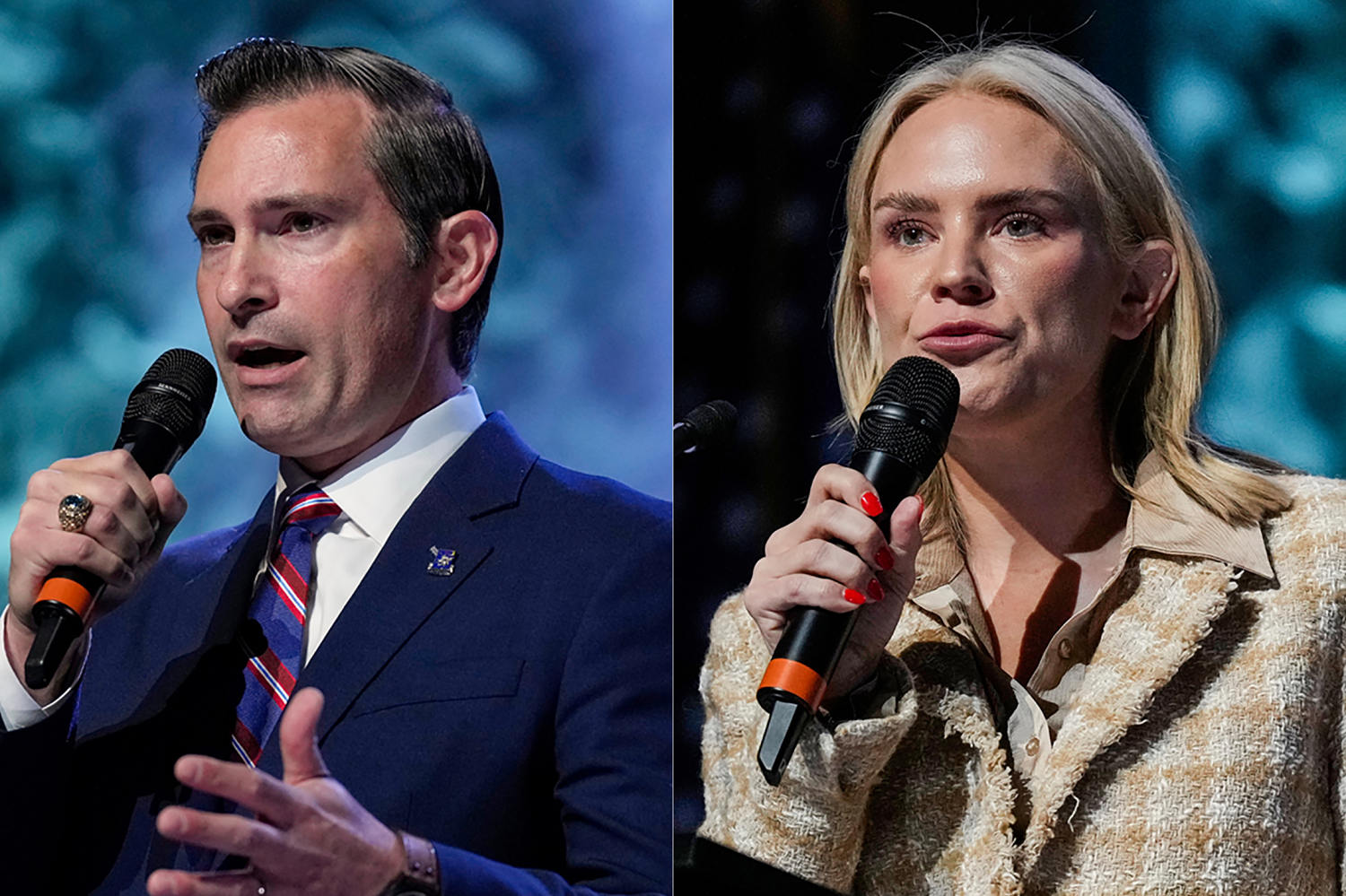
Money is pouring into a deep-red House district in Tennessee ahead of an early December special election as the candidates and their super PAC backers ramp up spending.
Republican Matt Van Epps, a former state official, and Democratic state Rep. Aftyn Behn are in a heated ad war that has drawn notable outside groups from both parties into the 7th Congressional District, which President Donald Trump carried by 22 points in 2024.
Behn’s campaign raised more than $1 million from Oct. 1 to Nov. 12, according to a campaign finance filing Thursday. She spent a little more than half of that during the same period. Van Epps, meanwhile, raised about $591,000 and spent most of it, leaving him with $231,000 in the bank for the stretch run. Behn had about $522,000 on hand at the close of the fundraising period.
Behn hopes to mobilize independents and moderate Republicans, as well as her Nashville Democratic base, to capitalize on expected low turnout. She sees a path to victory by defining herself as an accountability candidate who could put a check on President Donald Trump’s party in the House, particularly criticizing the GOP’s signature tax cuts and spending bill, as well as Trump’s tariffs. And she’s running an unabashedly Democratic campaign, leaning on Democratic National Committee Chairman Ken Martin and former Vice President Kamala Harris.
But that support from establishment figures is giving her opponent fodder.
Van Epps, an Army veteran, boasts endorsements from Trump, Gov. Bill Lee and former Rep. Mark Green, who resigned in April from the seat Van Epps seeks to fill. He’s running on reliably MAGA themes as Republicans are trying to rev up enthusiasm for the unusually timed election — and make sure low turnout doesn’t turn into an embarrassing result. But he has also sought to emphasize other issues on the airwaves, like bringing down prices.
The Trump-aligned super PAC MAGA Inc. has already reported over $1 million in independent expenditures in the race, the first time it has waded into a federal contest this year. Other conservative groups, like Club for Growth and another super PAC that has been primarily funded by GOP megadonors in the past, have jumped in, too, to boost Van Epps.
Behn is getting an outside boost, too, albeit a bit of a smaller one than her Republican opponent.
More than $3.3 million has been spent to oppose Behn or support Van Epps, with a little more than $900,000 in independent expenditures aimed at boosting Behn. That includes about $100,000 that also boosts independent Jon Thorp, most likely hoping Thorp, an Army veteran, might pull more votes from the Republican candidate than the Democratic one.
Republicans have the edge on the airwaves, too. The Van Epps campaign and its allies have spent about $730,000 on advertising since the primary, according to the ad-tracking firm AdImpact, while Democrats have spent about $500,000.
Super PACs backing Van Epps are trying to brand Behn as a radical, likening her to New York Mayor-elect Zohran Mamdani and using a clip from a video she recorded calling herself a “very radical person.” Van Epps’ own campaign has run ads playing up his service in the Army.
Behn hit back with an ad comparing conditions for working people to a rough ride on a mechanical bull. She criticized expiring Medicare subsidies, tariffs and the Trump administration’s longtime hesitancy to release files related to the investigation into late financier and convicted sex offender Jeffrey Epstein.
